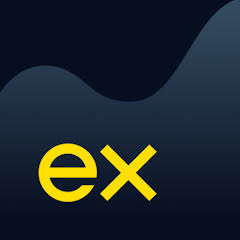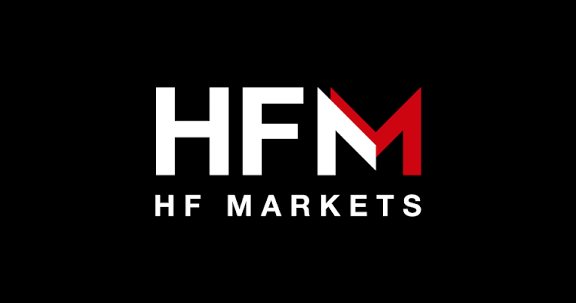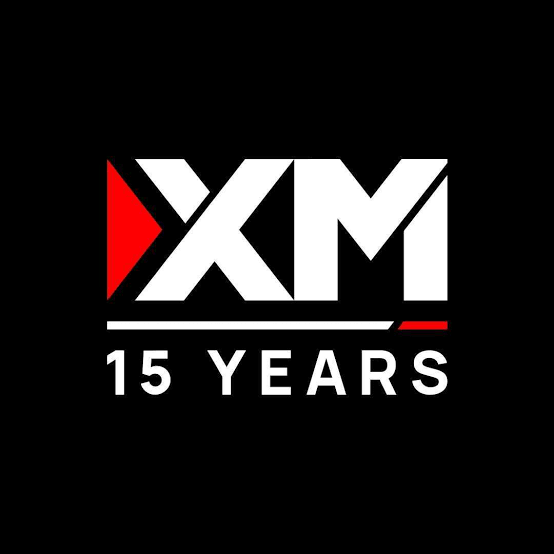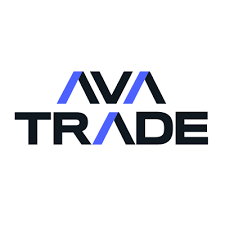Best Stock Brokers – A Practical, Educational Framework
Stock brokers differ by market access, routing quality, data packages, and platform tooling. This page focuses on measurable elements—pricing, execution, and platform stability—alongside risk practices. Educational only; use demo/sim where available before risking capital.
Recommended Brokers 2025
Educational access and demo-first practice. No investment advice.
Table of Contents
- Recommended Brokers
- Introduction to Stock Trading
- Types of Stock Brokers
- Key Features of Quality Stock Brokers
- Regulation and Investor Protection
- Understanding Stock Trading Costs
- Trading Platforms Comparison
- Stock Account Types Explained
- Market Access and Order Routing
- Independent Broker Rankings 2025
- Detailed Broker Reviews
- Due Diligence Checklist
- Risk Management in Stock Trading
- Educational Resources Section
- Broker Education Section
- Frequently Asked Questions
Introduction to Stock Trading
Stock trading involves buying and selling shares of publicly traded companies on various exchanges worldwide. Unlike forex or crypto markets, stock markets have specific trading hours, settlement periods, and regulatory requirements that vary by country and exchange.
How Stock Markets Work
Stock markets operate as auction markets where buyers and sellers come together to trade shares. Major exchanges like the NYSE, NASDAQ, LSE, and TSE have specific listing requirements, trading hours, and market structures. Understanding these differences is crucial for selecting the right broker with access to your preferred markets.
Major Stock Exchanges Worldwide
| Exchange | Location | Trading Hours (Local) | Notable Companies |
|---|---|---|---|
| NYSE | United States | 9:30 AM - 4:00 PM | Walmart, Coca-Cola, Johnson & Johnson |
| NASDAQ | United States | 9:30 AM - 4:00 PM | Apple, Microsoft, Amazon, Tesla |
| LSE | United Kingdom | 8:00 AM - 4:30 PM | BP, HSBC, GlaxoSmithKline |
| TSE | Japan | 9:00 AM - 3:00 PM | Toyota, Sony, Mitsubishi |
| HKEX | Hong Kong | 9:30 AM - 4:00 PM | Tencent, HSBC, AIA |
Types of Stock Brokers
Stock brokers can be categorized based on their service models, execution methods, and target clientele. Understanding these differences helps you select a broker that matches your trading style, experience level, and investment goals.
Full-Service vs. Discount Brokers
| Feature | Full-Service Brokers | Discount/Online Brokers |
|---|---|---|
| Services | Investment advice, portfolio management, research | Self-directed trading platforms, basic research |
| Cost Structure | Higher commissions, management fees | Low or zero commissions, pay for order flow |
| Target Clients | High-net-worth individuals, investors needing guidance | Self-directed traders, cost-conscious investors |
| Examples | Morgan Stanley, Goldman Sachs | Deriv, Interactive Brokers, E*TRADE |
Execution-Only vs. Advisory Brokers
Execution-only brokers simply execute trades as instructed, while advisory brokers provide recommendations and guidance. Most online brokers today fall into the execution-only category, offering tools and research but leaving investment decisions to clients.
Key Features of Quality Stock Brokers
When evaluating stock brokers, several critical factors determine whether they can meet your trading needs effectively, safely, and cost-efficiently.
Essential Broker Features
Trading Conditions
- Competitive commissions and fees
- Fast and reliable order execution
- Access to multiple global markets
- Real-time market data
- Fractional share trading
Platform & Tools
- Intuitive trading platform
- Advanced charting and analysis
- Multiple order types
- Mobile trading app
- Research and screening tools
Safety & Support
- Strong regulatory oversight
- SIPC/FSCS insurance protection
- Secure technology infrastructure
- Responsive customer service
- Educational resources
Account Features
- Low minimum deposit
- Multiple account types
- Flexible funding options
- Quick withdrawal processing
- Tax-advantaged accounts
Regulation and Investor Protection
Regulation is the most critical factor when choosing a stock broker. Regulated brokers must adhere to strict financial standards, provide transparency, and offer client protection mechanisms that safeguard your investments.
Major Regulatory Bodies for Stock Brokers
| Regulator | Region | Investor Protection | Key Requirements |
|---|---|---|---|
| SEC & FINRA | United States | SIPC: $500,000 ($250,000 cash) | Regular audits, capital requirements, disclosure |
| FCA | United Kingdom | FSCS: £85,000 | Client money segregation, best execution |
| ASIC | Australia | No statutory compensation | Segregated funds, strict capital requirements |
| IIROC | Canada | CIPF: $1,000,000 | Capital requirements, client protection rules |
| SFC | Hong Kong | ICS: HK$500,000 | Client asset segregation, licensing requirements |
Investor Protection Schemes
- SIPC (US): Protects against broker insolvency up to $500,000
- FSCS (UK): Covers up to £85,000 per person per firm
- CIPF (Canada): Provides up to $1,000,000 protection
- ASIC (Australia): No statutory compensation but strict regulations
- Segregated Accounts: Client funds kept separate from broker assets
Understanding Stock Trading Costs
Trading costs significantly impact investment returns, especially for active traders. Understanding all potential costs helps you calculate your true break-even points and evaluate broker competitiveness.
Components of Stock Trading Costs
| Cost Type | Description | Typical Range | Impact on Trading |
|---|---|---|---|
| Commissions | Fee per trade execution | $0 - $20 per trade | Direct cost on each buy/sell |
| Spread | Difference between bid and ask prices | 0.01% - 0.5% of trade value | Implicit cost on entry and exit |
| Platform Fees | Monthly charges for platform access | $0 - $200 per month | Fixed cost regardless of trading activity |
| Data Fees | Charges for real-time market data | $0 - $150 per month | Essential for active trading |
| Inactivity Fees | Charges for dormant accounts | $0 - $50 per month | Avoidable cost with regular activity |
Cost Comparison: Major Stock Brokers
| Broker | Stock Commission | Options Commission | Platform Fees | Account Minimum |
|---|---|---|---|---|
| Deriv | $0 (CFDs only) | N/A | $0 | $5 |
| Interactive Brokers | $0 - $0.005/share | $0.15 - $0.65/contract | $0 - $120/month | $0 |
| Charles Schwab | $0 | $0.65/contract | $0 | $0 |
| Fidelity | $0 | $0.65/contract | $0 | $0 |
| E*TRADE | $0 | $0.50 - $0.65/contract | $0 | $0 |
Note: Commission-free trading typically applies to US-listed stocks and ETFs. Options, mutual funds, and international stocks may have different fee structures.
Trading Platforms Comparison
The trading platform is your primary interface with the markets. Choosing the right platform can significantly impact your trading experience, efficiency, and ultimately, your performance.
Popular Stock Trading Platforms
| Platform | User Level | Charting & Analysis | Mobile Experience | Best For |
|---|---|---|---|---|
| MetaTrader 5 | Intermediate to Advanced | Excellent | Good | Multi-asset trading, automation |
| Thinkorswim | Intermediate to Advanced | Excellent | Excellent | Options trading, technical analysis |
| StreetSmart Edge | Intermediate | Very Good | Good | Schwab clients, research integration |
| Active Trader Pro | Intermediate to Advanced | Very Good | Good | Fidelity clients, ETF trading |
| Deriv Trader | Beginner to Intermediate | Good | Good | CFD trading, synthetic indices |
| Power E*TRADE | Intermediate | Very Good | Excellent | Options, futures, mobile trading |
Stock Account Types Explained
Most brokers offer multiple account types designed for different trading styles, investment goals, and tax situations. Understanding these options helps you select the most suitable account for your needs.
Common Stock Account Types
| Account Type | Tax Treatment | Contribution Limits | Withdrawal Rules | Best For |
|---|---|---|---|---|
| Individual Brokerage | Taxable annually | No limits | Anytime | General investing, active trading |
| IRA (Traditional) | Tax-deferred | $7,000 ($8,000 if 50+) | Penalty before 59½ | Retirement savings |
| IRA (Roth) | Tax-free growth | $7,000 ($8,000 if 50+) | Contributions anytime | Long-term retirement |
| Joint Account | Taxable annually | No limits | Anytime | Couples, family investing |
| Custodial (UTMA/UGMA) | Taxable to minor | No limits | For minor's benefit | Gifts to minors, education |
Market Access and Order Routing
Understanding how your orders are routed and executed can significantly impact your trading results. Different brokers have different relationships with market makers and exchanges, which affects execution quality.
Order Routing Practices
| Routing Method | How It Works | Pros | Cons |
|---|---|---|---|
| Payment for Order Flow | Broker sells orders to market makers | Commission-free trading | Potential for inferior execution prices |
| Direct Market Access | Orders sent directly to exchanges | Better price improvement potential | Higher commissions, more complex |
| Smart Order Routing | Algorithm finds best execution venue | Optimizes execution across venues | Routing logic may not align with your goals |
International Market Access
Access to international markets varies significantly between brokers. Some offer direct access to foreign exchanges, while others provide ADRs or CFDs on international stocks.
| Broker | US Markets | European Markets | Asian Markets | Access Method |
|---|---|---|---|---|
| Interactive Brokers | Direct | Direct (26 countries) | Direct (8 countries) | Direct exchange access |
| Charles Schwab | Direct | Limited (12 countries) | Limited (6 countries) | ADRs, international trading |
| Fidelity | Direct | Limited (25 countries) | Limited (10 countries) | International trading service |
| Deriv | CFDs only | CFDs only | CFDs only | CFDs on global indices |
Independent Broker Rankings 2025
We evaluated stock brokers based on trading costs, platform features, research tools, customer service, and educational resources. Here are our top recommendations for different types of traders.
Top 6 Stock Brokers for 2025
| Rank | Broker | Overall Score | Best For |
|---|---|---|---|
| 1 | Interactive Brokers | 9.6/10 | Professional Traders & Global Access |
| 2 | Charles Schwab | 9.4/10 | Research & Banking Integration |
| 3 | Fidelity | 9.3/10 | ETF Trading & Retirement |
| 4 | Deriv | 9.1/10 | CFD Trading & Innovative Products |
| 5 | E*TRADE | 9.0/10 | Options Trading & Platform Choice |
| 6 | TD Ameritrade | 8.9/10 | Education & thinkorswim Platform |
Why These Brokers Scored Well
Interactive Brokers – Offers the widest range of tradable products with access to 150 markets in 33 countries. Competitive pricing with tiered commissions and excellent execution quality. Best for active traders and investors seeking global diversification.
Charles Schwab – Powerful research tools integrated with excellent banking services. Commission-free stock and ETF trading with a robust mobile platform. Strong educational resources and 24/7 customer support.
Fidelity – Outstanding research and screening tools with zero expense ratio index funds. Excellent retirement planning resources and fractional share trading. No account minimums or inactivity fees.
Deriv – Innovative trading platform with access to CFDs on global stocks and indices. User-friendly interface with competitive spreads and flexible leverage options. Excellent for traders interested in synthetic indices and short-term trading.
E*TRADE – Two powerful platforms catering to both active traders and casual investors. Excellent options trading tools with $0 commissions. Strong mobile experience and extensive educational content.
TD Ameritrade – Industry-leading thinkorswim platform with advanced charting and analysis tools. Extensive educational resources and $0 commissions on online stock, ETF, and options trades. Now part of Charles Schwab but maintaining separate platforms.
Detailed Broker Reviews
Here's an in-depth look at our top recommended stock brokers, examining their strengths, weaknesses, and ideal user profiles.
Interactive Brokers - Comprehensive Review
| Feature | Rating | Details |
|---|---|---|
| Trading Costs | 10/10 | Tiered pricing: $0 - $0.005/share, min $1 per order |
| Platform & Tools | 9/10 | TWS (complex), IBKR Mobile & Client Portal (simple) |
| Market Access | 10/10 | 150 markets in 33 countries, 24 currencies |
| Research & Education | 8/10 | Comprehensive but complex learning curve |
| Customer Service | 8/10 | 24/5 support, extensive knowledge base |
Pros and Cons
Pros
- Lowest trading costs for active traders
- Unmatched global market access
- Advanced trading platform (TWS)
- Powerful API for algorithmic trading
- Excellent execution quality
Cons
- Complex platform has steep learning curve
- Inactivity fee for small accounts ($20/month)
- Customer service can be slow during peak times
- Mobile app less intuitive than competitors
Deriv - Comprehensive Review
| Feature | Rating | Details |
|---|---|---|
| Trading Costs | 8/10 | Competitive spreads, no commissions on most accounts |
| Platform & Tools | 9/10 | Deriv Trader, Deriv MT5, Deriv X, SmartTrader |
| Market Access | 7/10 | CFDs on global indices and stocks, synthetic indices |
| Research & Education | 9/10 | Extensive learning materials, 24/7 support |
| Customer Service | 9/10 | 24/7 multilingual support, responsive live chat |
Pros and Cons
Pros
- Innovative trading products and platforms
- User-friendly interface suitable for beginners
- Strong regulatory framework across multiple jurisdictions
- Excellent educational resources and demo accounts
- Flexible account options with low minimum deposit
Cons
- CFD trading only (no direct stock ownership)
- Limited traditional stock selection
- Not available in some countries including USA
- Synthetic products may be complex for some traders
Due Diligence Checklist
Write down a simple process and apply it consistently. Verify regulation and any protections that apply in your region. Define your typical trade—instrument, average size, and holding time—so you can compare all‑in costs on relevant terms. Test execution on a demo during liquid overlaps and record intended versus filled prices to measure slippage. Read swap policies for overnight holds and understand corporate action handling on CFDs where applicable. Validate the platform features you actually use—multiple charts, hotkeys, alerts—and transition to live slowly with small risk per trade and a daily drawdown cap.
Due Diligence Checklist
| Category | Checkpoints | Notes |
|---|---|---|
| Regulation & Security |
|
Verify with official regulatory websites |
| Trading Costs |
|
Calculate all-in costs for your typical trades |
| Platform & Tools |
|
Test during market hours with demo account |
| Execution Quality |
|
Review broker's Rule 606 reports (US brokers) |
Risk Management in Stock Trading
Effective risk management is essential for long-term success in stock trading. Even the best trading strategy will fail without proper risk controls to protect your capital during inevitable market downturns.
Essential Risk Management Principles
Position Sizing
- Risk only 1-2% of account per trade
- Use proper position size calculations
- Adjust position size based on volatility
- Consider correlation between positions
Stop Loss Strategies
- Always use stop loss orders
- Place stops at logical technical levels
- Use trailing stops to protect profits
- Adjust stops to breakeven when appropriate
Portfolio Management
- Diversify across sectors and asset classes
- Rebalance portfolio periodically
- Monitor portfolio beta and correlation
- Use asset allocation strategies
Psychological Controls
- Set daily and weekly loss limits
- Take breaks after consecutive losses
- Avoid revenge trading
- Keep a detailed trading journal
Risk Management Tools by Broker
| Broker | Stop Loss Orders | Trailing Stops | Bracket Orders | Risk Analysis Tools |
|---|---|---|---|---|
| Interactive Brokers | Yes | Yes | Yes | Advanced portfolio analytics |
| Charles Schwab | Yes | Yes | Yes | Portfolio checkup tools |
| Fidelity | Yes | Yes | Limited | Planning & guidance center |
| Deriv | Yes | No | No | Basic risk management tools |
| E*TRADE | Yes | Yes | Yes | Portfolio modeling tools |
Educational Resources Section
Quality educational resources can significantly accelerate your learning curve in stock trading. The best brokers offer comprehensive materials for investors and traders at all experience levels.
Types of Educational Resources
Beginner Resources
- Stock market basics tutorials
- Platform walkthroughs
- Risk management guides
- Demo account tutorials
- Investment glossary
Intermediate Resources
- Technical analysis courses
- Options trading strategies
- Market analysis webinars
- Portfolio management guides
- Earnings analysis tutorials
Advanced Resources
- Algorithmic trading guides
- Advanced options strategies
- Quantitative analysis
- Market microstructure
- Professional trading techniques
Broker Education Section
Deriv
Understand CFD trading vs stock ownership; practice on demo before live.
Frequently Asked Questions
What's the difference between trading stocks and stock CFDs?
When you buy stocks, you own the underlying shares and can benefit from dividends and voting rights. With stock CFDs, you're speculating on price movements without owning the shares. CFDs offer leverage and short-selling flexibility but come with financing costs and higher risk.
How do I choose between a traditional broker and a CFD provider?
Traditional brokers are better for long-term investing, dividend collection, and retirement accounts. CFD providers suit short-term trading, leverage needs, and markets where direct access is limited. Many traders use both for different strategies.
What is the minimum amount needed to start stock trading?
With traditional brokers, you can start with $0 at many firms thanks to fractional shares. For active trading, $2,000-$5,000 provides adequate risk management. CFD brokers often have lower minimums ($100-$500) but require careful risk management due to leverage.
How important is regulation when choosing a stock broker?
Extremely important. Regulated brokers must adhere to strict financial standards, provide segregation of client funds, and offer investor protection schemes like SIPC or FSCS. Always verify a broker's regulatory status with the official regulatory body.
What trading platform is best for beginners?
For traditional investing, Fidelity or Charles Schwab offer user-friendly platforms with excellent educational resources. For CFD trading, Deriv provides an intuitive interface with comprehensive learning materials. Most brokers offer demo accounts for practice.
How much should I pay in trading commissions?
Most major brokers now offer commission-free stock and ETF trading. Options typically cost $0.50-$0.65 per contract. Be aware of other fees like wire transfers, paper statements, or account inactivity charges that can add up.
What's the difference between market and limit orders?
Market orders execute immediately at the current market price, while limit orders only execute at your specified price or better. Limit orders prevent slippage but may not fill if the price doesn't reach your level. Use market orders for liquid stocks and limit orders for less liquid ones.




